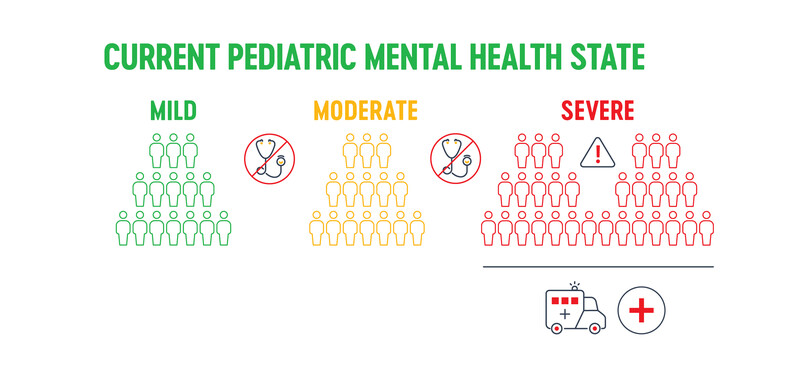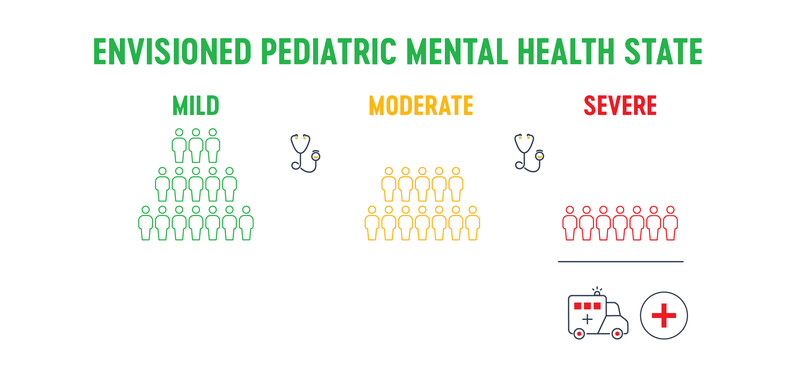
Building a Brighter Future For the Mental Health of Children
The Behavioral Health Integration and Guidance (BHIG) Initiative is redistributing when and where children’s mental health concerns are assessed and managed.
This effort combines the expertise of Children’s Health℠ and the Meadows Mental Health Policy Institute to effectively and sustainably equip and empower pediatricians across North Texas to incorporate mental health services into standard primary care practice. The shift will lead to early intervention; convenient and trusted care management; a lower prevalence in severe cases; and reduced pressure on the limited mental health specialists.
Rather than caring for kids’ needs at the breaking point, this approach will enable primary care providers across the region to detect and address needs early, before they escalate.
This initiative offers an achievable, affordable solution that will benefit children, their families, pediatricians, and the larger health care system. The impact of our behavioral health initiative will be big — both now and for years to come.
“To me, this initiative represents a unique opportunity to make significant and lasting change,” said Dr. Sabrina Alexis Browne, the Child Psychiatrist for Children’s Health Behavioral Health Integration and Guidance (BHIG) Initiative and an Assistant Professor in the department of Psychiatry at UT Southwestern. “In my previous role with the Child Psychiatry Access Network, I provided support to pediatricians in managing the mental health needs of their patients, and I'm excited to continue the work of expanding access to mental health care for kids.”
For several years, Children’s Health and the Meadows Institute have been developing this new approach and generous support from donors has been the driving force to bring BHIG to fruition in 2021. From those who provided funding to help advance any pressing mental health-related needs to those who specifically supported the BHIG initiative, we would not have been able to launch this important and significant endeavor without philanthropy and the confidence our community places in us to make life better for many children.
“To be part of something that has received so much community support and interest makes it that much more promising,” Dr. Browne said. “The mental health and well-being of children affects everyone and BHIG is an effort we can all stand behind.”
THE THREE PRIMARY COMPONENTS OF BHIG ARE:
Training community pediatricians, where families usually have trust and regular access, to identify mental health issues and provide early therapies for things like mild-to-moderate anxiety and depression. Training will be online and in-person at a demonstration clinic and will include billing processed so these new services can be reimbursed. Experts will be available for referrals to help with more serious cases.
Evaluating patient- and provider-level data and outcomes to inform evidence-based practices that will ensure consistency and quality within pediatricians’ offices.
Advocating for sustainability and scalability of this approach by changing the way stakeholders, insurance carriers and the legislature addresses mental health needs of children.

Mild and moderate cases are left undiagnosed and untreated due to a lack of specialized training and limited providers, leading to a progression in mental and behavioral health symptoms and severity that is later treated at a crisis mode within a hospital.
Limited providers
Limited and at-capacity facilities
Inadequate resources
Late identification
More severe consequences
More pressure on resources
Reliance on ERs
No treatment at all

Expanded providers and resources
Trained pediatricians providing early diagnosis and management
Convenient, trusted access to care
Acute resources preserved for acute cases
Less pressure on system

